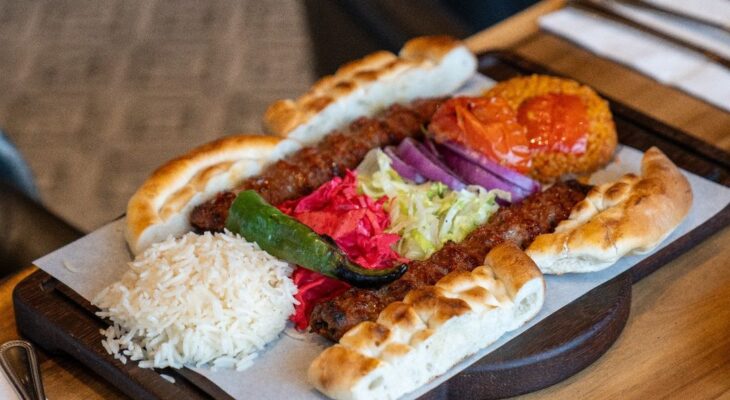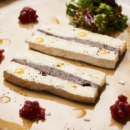
A Beginner’s Guide to Turkish Food: Exploring the Flavors of Turkey
Turkish food is a vibrant tapestry of flavors, textures, and aromas, reflecting the country’s rich history and diverse cultural influences. Nestled between Europe and Asia, Turkey’s culinary traditions have evolved over centuries, blending elements from the Ottoman Empire, Central Asia, the Mediterranean, and the Middle East. For anyone new to Turkish food, this guide introduces key components, popular dishes, and the cultural significance of the cuisine.
The Heart of Turkish Cuisine: Fresh Ingredients and Bold Flavors
At the core of Turkish cooking is an emphasis on fresh, high-quality ingredients. Seasonal vegetables, herbs, olive oil, grains, and meats are staples, combined in a way that celebrates natural flavors. From the lush olive groves of the Aegean coast to the spice markets of Istanbul, every ingredient plays a vital role in creating the distinctive taste of Turkish cuisine.
Turkish food leans heavily on balanced seasoning. Aromatic spices like sumac, cumin, paprika, and mint are used to enhance dishes while not overpowering their essence. The result is a cuisine that’s both comforting and exciting, appealing to a wide range of palates.
A Glimpse Into Traditional Turkish Meals
A typical Turkish meal is a communal experience, often featuring a variety of dishes that encourage sharing and conversation. Meals start with meze, an assortment of small plates served with bread. These appetizers might include creamy haydari (yogurt dip with garlic and dill), savory ezme (spicy tomato and pepper salad), and tangy stuffed grape leaves called yaprak sarma.
The main course often revolves around grilled or stewed meats, such as kebabs or köfte (meatballs), accompanied by rice, bulgur, or flatbread. Vegetarians will find plenty to enjoy as well, from imam bayıldı (stuffed eggplant) to mercimek çorbası (lentil soup).
Dessert holds a special place in Turkish cuisine. Classics like baklava, made with layers of phyllo dough, nuts, and syrup, or künefe, a cheese-filled pastry soaked in syrup, provide a sweet end to the meal. These desserts are often paired with strong Turkish tea or the famous Turkish coffee, prepared in a cezve pot and served with a frothy top.
Breakfast: The Foundation of Turkish Culinary Culture
Breakfast, or kahvaltı, is a cornerstone of Turkish food culture. Unlike the quick meals common in many Western countries, Turkish breakfast is an elaborate affair featuring a variety of dishes. Fresh bread is served alongside cheeses, olives, tomatoes, cucumbers, jams, honey, and butter. Hot dishes like menemen (scrambled eggs with tomatoes and peppers) or sucuklu yumurta (eggs with spicy sausage) add heartiness.
Tea is an integral part of Turkish breakfast, served in small tulip-shaped glasses. The slow pace of the meal encourages relaxation and connection, embodying the Turkish ethos of enjoying life’s simple pleasures.
Iconic Turkish Dishes You Must Try
Adana Kebab originates from the southern city of Adana and features minced lamb seasoned with chili and grilled over an open flame, offering a smoky, spicy flavor. Iskender Kebab layers thinly sliced lamb or beef over pita bread, drenched in tomato sauce, and topped with yogurt and melted butter, delivering rich, comforting flavors.
Lahmacun, often called “Turkish pizza,” is a thin flatbread topped with minced meat, onions, tomatoes, and spices. It’s often rolled up with parsley and lemon juice for a burst of freshness. Manti, Turkish dumplings filled with spiced meat and topped with yogurt, garlic, and a drizzle of paprika-infused butter, offer hearty, flavorful bites.
Pide, a boat-shaped bread topped with cheese, vegetables, or meats, is perfect for sharing or enjoying as a solo indulgence.
The Importance of Halal in Turkish Cuisine
In Turkey, halal food practices are deeply rooted in cultural and religious traditions. Every dish follows these standards, ensuring that the meat is prepared according to Islamic guidelines and sourced ethically. This commitment to halal extends to the entire menu, offering peace of mind to diners seeking authentic, halal Turkish cuisine.
Turkish Drinks: More Than Just Beverages
Turkish tea and coffee are not just drinks—they are symbols of hospitality and culture. Tea is served throughout the day in every setting, from casual gatherings to business meetings. Turkish coffee, meanwhile, is an art form, prepared with finely ground coffee beans and served with a side of Turkish delight or sugar cubes.
For something refreshing, ayran, a salty yogurt-based drink, perfectly complements savory dishes, while şalgam, a tangy turnip juice popular in southern Turkey, offers a unique taste.
Why Turkish Cuisine Stands Out
Turkish cuisine’s charm lies in its versatility. Whether indulging in a lavish feast or enjoying a simple street food snack like simit (sesame-coated bread rings), the flavors are always satisfying and memorable. Turkish food also caters to a variety of dietary needs, making it accessible and inclusive.
From colorful mezes to aromatic grills, Turkish cuisine offers an experience that goes beyond just eating—it’s about savoring life, connecting with others, and celebrating tradition.
Discover the Best Turkish Food
To explore authentic Turkish cuisine, Mississauga offers exceptional options for trying dishes like kebabs, baklava, and much more. For those curious about where to start, visiting the best Turkish restaurant in Mississauga provides the perfect introduction to the flavors and heritage of Turkey. Each dish tells a story, offering an unforgettable journey into the heart of Turkish culinary traditions.











